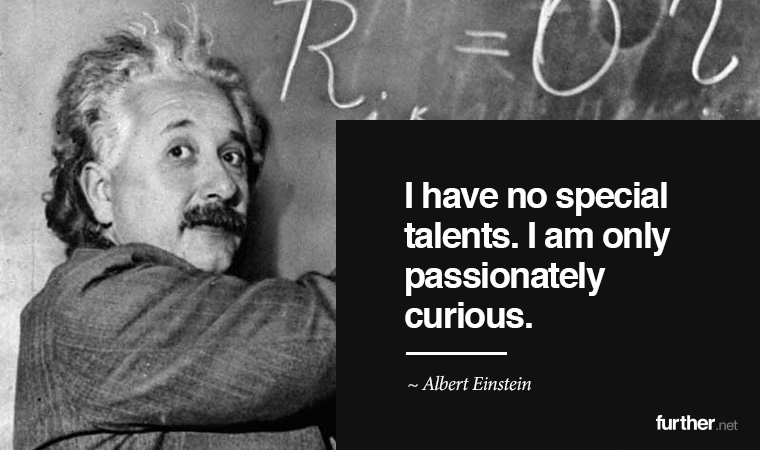
further: feature
It used to be the stuff of science fiction. Now, robots, automation, and intelligent algorithms are at the center of a discussion about the future of human employment. Some estimates project that 47 percent of US jobs are at risk of computerisation.
Maybe that figure is high, maybe it’s low. But there’s no doubt that for-profit enterprises will take whatever steps they can to reduce costs and increase output, and that means a lot of jobs will continue to be eliminated at the hands of advancing technology.
Which human roles are deemed safe in the future world of work? Those involving creativity, social intelligence, and the ability to interact with complex objects and environments. And naturally those skills are supplemented by constant, real-time information synthesis and learning.
What Do We Have That Machines and Apes Do Not?
There’s a unique and crucial characteristic that separates us from both algorithms and our primate cousins with whom we share most of our DNA. Machines and other primates can learn, but they can’t ask why.
According to Ian Leslie, author of Curious: The Desire to Know and Why Your Future Depends On It, it’s curiosity that is the definitive trait that propels humanity forward. And it’s an innate state of curiosity that powers the most innovative and in-demand human prospects in the corporate and entrepreneurial world.
It certainly hasn’t always been this way. Stories ranging from Adam and Eve to Icarus warn against the perils of curiosity, even equating it with greed. Saint Augustine stated that “God fashioned hell for the inquisitive.” Curiosity doesn’t like rules and the status quo, and that makes it dangerous to those in power.
Put another way, curiosity prompts the kind of questioning behavior that flies in the face of social, religious, and institutional authority. In the words of Vladimir Nabokov, “Curiosity is insubordination in its purest form.”
Are You Curious?
These days, the truly curious are sought after instead of shunned by employers (if they’re not already starting and running their own companies, that is). The people who enjoy the highest economic security now and into the future, according to Leslie, possess “a strong, intrinsic desire to learn, solve problems, and ask penetrating questions.”
There is a rising premium on people with a high “need for cognition.” Need for cognition, or NFC, is a scientific measure of intellectual curiosity. Leslie elaborates:
- “People who are low in NFC are more likely to rely on others to explain things, or to fall back on cognitive heuristics, like agreeing with what everyone else seems to be saying. If you are high in NFC, you are more likely to actively seek out experiences and information that make you think, challenge your assumptions, and pose puzzles.”
If you’re a regular reader of Further, your interest in this type of subject matter alone likely indicates that you’re high in NFC. To make sure, though, take this quick quiz.
Fortunately, curiosity is more of a state than a trait. That means our level of curiosity is highly responsive to the situation or stage of life we’re in. Even better, we can choose to engage our curiosity at a higher level any time we want, in any context we want.
Start by simply asking more questions. I’d begin with this one:
Could a robot do my job?
Further Reading:
- How to Keep a Piece of the Pie After the Robots Take Our Jobs
- Curious: The Desire to Know and Why Your Future Depends On It
- Seven Ways to Be More Curious
- Relearning the Art of Asking Questions
I found it interesting that curious people defeat cognitive decline as they age, too. One sign of a curious mind is the continuation of reading and writing activity for its own sake. Older people who rarely read or wrote experienced mental decline that was a staggering 48 percent faster compared to the average participants.
further: health
“The buzzword in health and weight loss is fasting. Don’t panic: you only have to close the kitchen for short bouts to get the benefits. One version of intermittent fasting is to eat just 500 calories on your fast days and whatever you want on your “feast” days. Another is to fast for 14 to 16 hours everyday, and only eat between the hours of, say, 9 AM and 5 PM. Either way, going without food is surprisingly good for you.”
- 6 Surprisingly Compelling Reasons To Try A Fasting Diet
- A Small Selection of Recent Calorie Restriction Research
further: wealth
“We are especially sensitive to signs of trustworthiness in our leaders, and compassion increases our willingness to trust. Simply put, our brains respond more positively to bosses who have shown us empathy, as neuroimaging research confirms. Employee trust in turn improves performance.”
further: wisdom
“We all do it: our best intentions are to go to the gym, get started on writing something, do practice learning a language … but then we procrastinate. There isn’t a person on this planet who’s immune to the procrastination habit.
How do we defeat this habit? Just as an athlete would, or a world-class chess player: daily training sessions.”
__________
Thanks for all the feedback last week on the link sections. Seems half of you read the Feature and also enjoy the links, and the other half just likes the Feature. Either way, that makes me happy. 🙂
This week I’m still pressed for time, so I brought back the links and used excerpts instead of original text. But I think I like keeping each section to one topic instead of cramming 3-4 different links. Let me know what you think.
Other than that, can I request a share of this week’s issue? Thank you!
Archives are here. More soon!
Keep going-
Brian Clark
Tour Guide
Further
